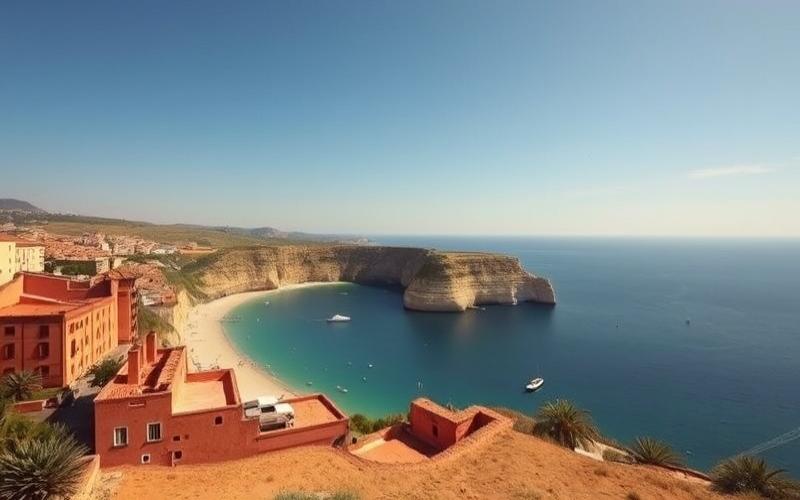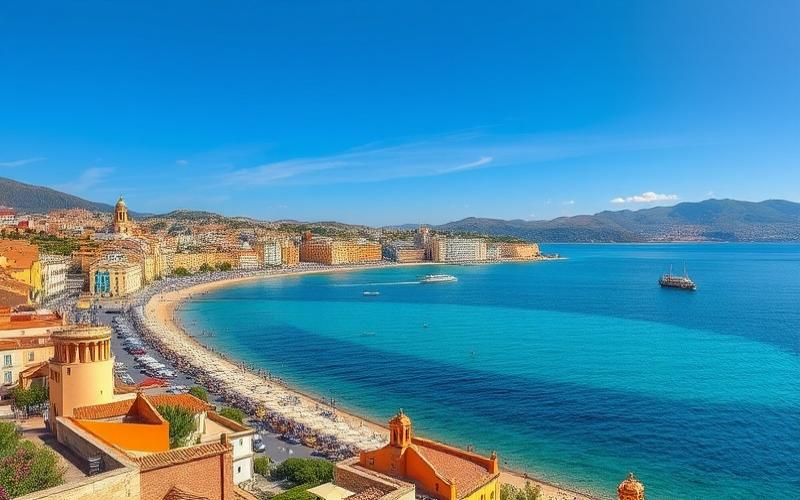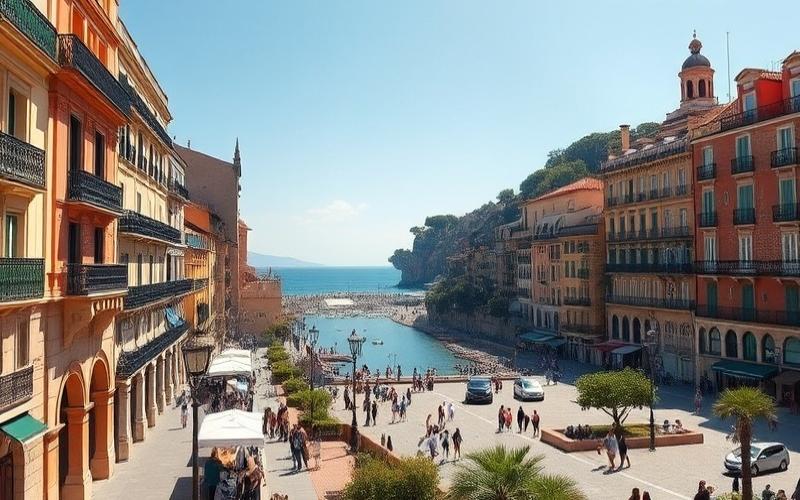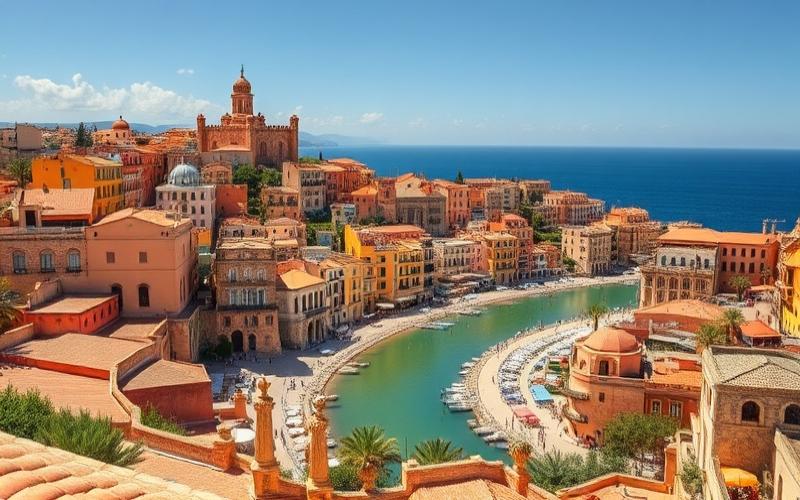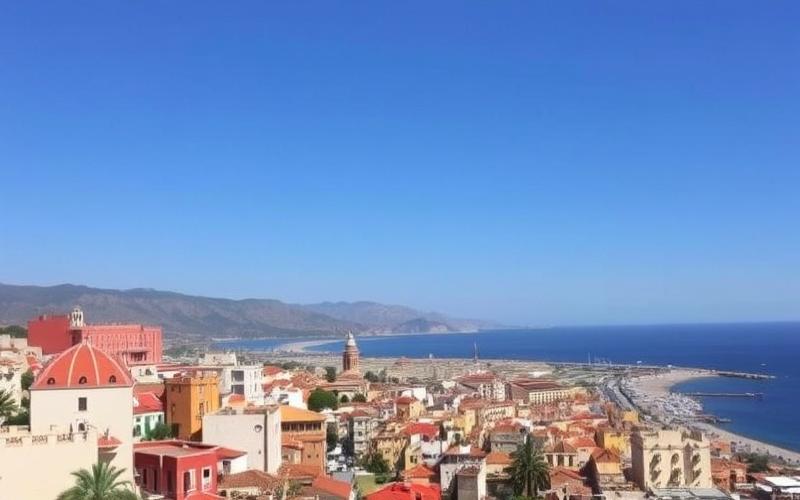
 Published on and written by Cyril Jarnias
Published on and written by Cyril Jarnias
Spain, with its sunny climate, dream beaches, and rich cultural heritage, attracts many foreign investors eager to purchase property. Whether for year-round living, vacation stays, or rental investments, buying real estate in Spain may require bank financing. But how can foreigners obtain a mortgage in Spain? What are the conditions and required documents? Let’s dive into the details of this fascinating and sometimes complex process.
Can foreigners really get a mortgage in Spain?
The answer is yes, but with some important nuances to know. The Spanish banking system is open to foreign investors, whether residents or non-residents. However, conditions vary significantly depending on your status.
For residents in Spain, meaning people living and working in the country for at least 183 days per year, Spanish banks offer conditions relatively similar to those for nationals. You can typically obtain financing up to 80% of the property value, with loan terms reaching up to 30 years.
Non-residents, on the other hand, face stricter criteria. Spanish banks consider these borrowers as presenting higher risk. Therefore, financing is generally limited to 60-70% of the property value, with shorter loan terms, often between 20 and 25 years. Interest rates may also be slightly higher to compensate for the perceived risk.
Several major Spanish banks have specialized in loans for foreign buyers:
- BBVA: Offers financing up to 70% for non-residents
- CaixaBank: Provides services in French and conditions adapted for expatriates
- Banco Santander: Can finance up to 80% for foreign residents
- Banc Sabadell: Known for its expertise in loans for international buyers
It’s important to note that Spanish banks evaluate each application individually. Your nationality, income, job stability, and credit history will all be considered in the loan approval decision and in determining the conditions.
Good to know:
Some French banks offer financing solutions for purchasing property in Spain, which can sometimes provide more favorable conditions. Don’t hesitate to explore this option alongside Spanish banks.
The winning application: Essential documents to secure your financing
To maximize your chances of obtaining a mortgage in Spain, it’s crucial to prepare a strong and complete application. Here’s the list of documents generally required by Spanish banks:
- Valid passport or identity card
- Recent proof of address (less than 3 months old)
- Mandatory document for any real estate transaction in Spain
- To be obtained from the Spanish consulate in your country or directly in Spain
- Last 3 pay stubs
- Latest tax return
- For self-employed: balance sheets and income statements from the last 2 or 3 years
- Statements from the last 3 to 6 months of all your bank accounts
- Asset statement if you have savings or other real estate properties
- Purchase agreement or detailed property description
- Recent property valuation by a certified appraiser
- Statement of your current loans (mortgages, consumer loans, etc.)
- Good standing certificate from your current bank
- Proof of address in your country of residence
- Employer certificate confirming your seniority and salary
All these documents will need to be translated into Spanish by a sworn translator. Some banks may also require an apostille to authenticate foreign documents.
Good to know:
Careful preparation of your application is crucial. A complete and well-organized application significantly increases your chances of obtaining financing under good conditions.
Keys to success: Essential conditions for securing your Spanish mortgage
Obtaining real estate financing in Spain as a foreigner requires meeting certain specific conditions. Here are the main criteria evaluated by Spanish banks:
1. A strong financial situation
- Your debt-to-income ratio: It should not exceed 30-35% of your net monthly income
- Income stability: A stable job or sustainable professional activity is a major asset
- Your savings: A substantial personal contribution reassures banks about your ability to manage your budget
2. A substantial personal contribution
- For residents: minimum 20% to 30% of the property price
- For non-residents: 30% to 40% of the property price
3. A quality property
- The property must be in good condition and compliant with Spanish habitability standards
- Its value must be confirmed by an independent appraisal
- New or recent properties are generally preferred by banks
4. Borrower’s insurance
As in France, taking out borrower’s insurance is mandatory. Spanish banks often offer their own contracts, but you can also opt for delegated insurance.
5. Opening a bank account in Spain
Most banks will require opening an account at their institution to domicile your income and loan repayments.
6. Language proficiency
Although not an official requirement, proficiency in Spanish (or at least English) will greatly facilitate your procedures and negotiations with banks.
7. A clear and well-defined project
Banks appreciate borrowers who have a clearly defined and realistic real estate project. Whether for a primary residence, secondary home, or rental investment, be prepared to explain your project in detail.
Good to know:
Some Spanish banks offer preferential conditions if you subscribe to other financial products with them (home insurance, credit card, etc.). This may allow you to obtain a more favorable interest rate.
Expert tips to optimize your chances
To maximize your chances of obtaining real estate financing in Spain under the best conditions, here are some expert tips:
1. Start your procedures early
Initiating the loan application process several months before your purchase will give you a clear view of your borrowing capacity and the conditions you can expect.
2. Compare offers
Don’t hesitate to approach several Spanish banks, as well as French ones. Conditions can vary significantly from one institution to another.
3. Use a specialized broker
A broker familiar with the Spanish market can help you build a strong application and negotiate the best conditions with banks.
4. Polish your application
Present an impeccable application, with all documents translated and organized. This will demonstrate your seriousness and professionalism.
5. Be transparent
Don’t hesitate to clearly explain your financial situation and real estate project. Transparency is appreciated by banks and can work in your favor.
6. Consider additional collateral
If you own other real estate properties, offering additional mortgage collateral can reassure the bank and help you obtain better conditions.
7. Anticipate additional costs
Don’t forget to include in your budget notary fees, taxes, and potential bank processing fees, which can represent 10 to 15% of the property price.
Obtaining real estate financing in Spain as a foreigner is entirely possible, but requires careful preparation and a good understanding of the local banking system. By following these tips and carefully preparing your application, you will significantly increase your chances of realizing your real estate dream under the Spanish sun.
Good to know:
The Spanish real estate market offers great opportunities, particularly in sought-after regions like Costa del Sol, the Balearic Islands, or Costa Blanca. With relatively low interest rates and attractive property prices in some areas, now is the ideal time to invest in Spain.
Disclaimer: The information provided on this website is for informational purposes only and does not constitute financial, legal, or professional advice. We encourage you to consult qualified experts before making any investment, real estate, or expatriation decisions. Although we strive to maintain up-to-date and accurate information, we do not guarantee the completeness, accuracy, or timeliness of the proposed content. As investment and expatriation involve risks, we disclaim any liability for potential losses or damages arising from the use of this site. Your use of this site confirms your acceptance of these terms and your understanding of the associated risks.

